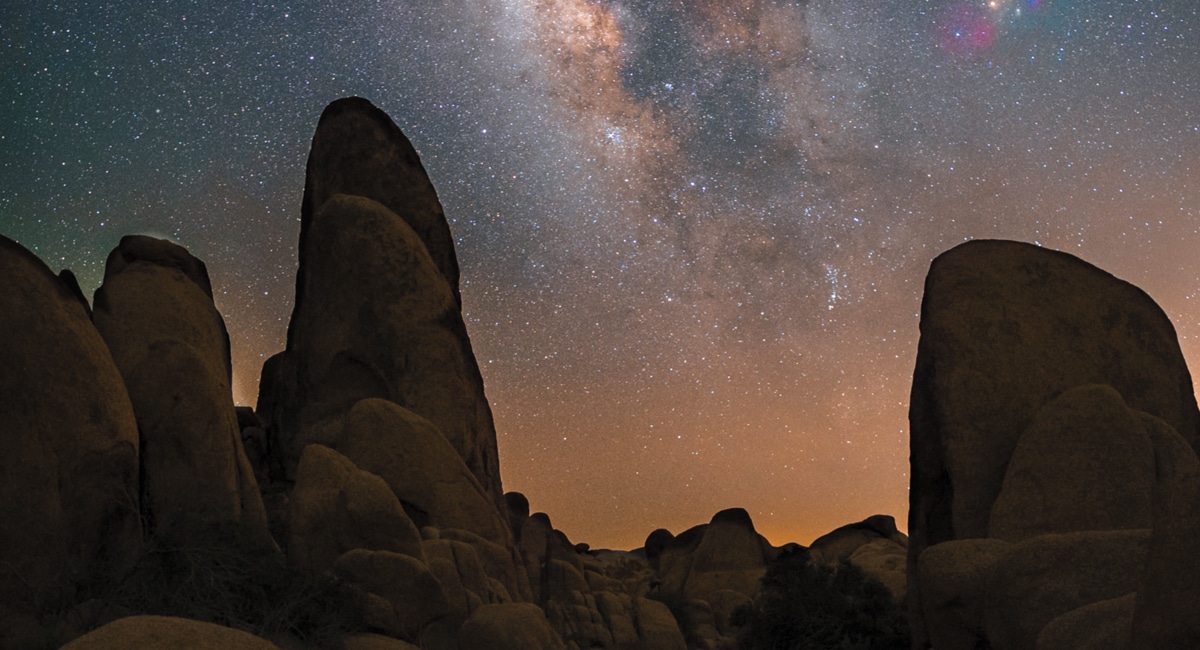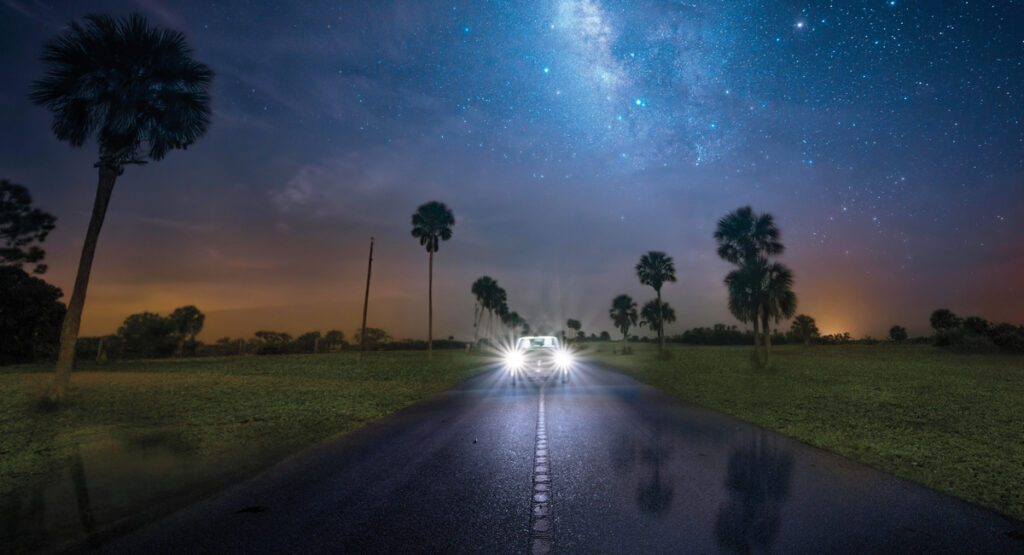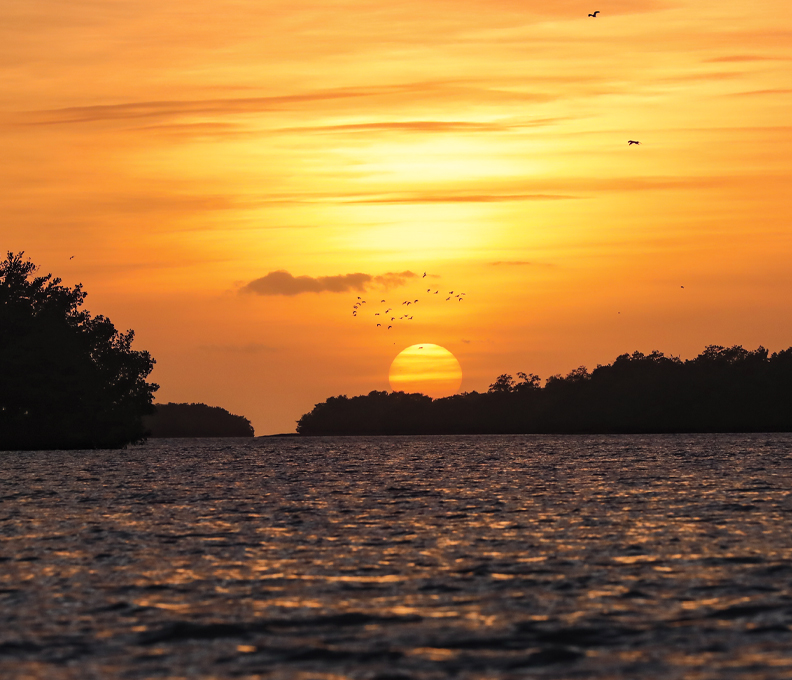Discover the Health Benefits of Astrotourism at These 4 Dark-Sky Parks
August 4, 2022

The next time you need a dose of peace and tranquility, point your eyes toward the sky to enjoy one of the wellness world’s newest trends: stargazing. “Astronomy elicits feelings of wonder and amazement,” says Sandra Benitez Herrera, a remote fellow for the Office of Astronomy for Development, an organization that promotes the use of stargazing for sustainable development.
Herrera is part of the OAD’s astronomy for mental health team. While the idea of astronomy supporting wellness is novel, the act of appreciating celestial objects is hardly new. Humans have used the cosmos for everything from navigation to harvesting for millennia. These days, our cosmic adoration is less about necessity and more about finding awe—something we all need after two years of pandemic stressors. “Enjoying inspirational activities with planets, stars and galaxies has positive benefits for mental health,” Herrera says.

California’s Joshua Tree National Park / Photo: Mark Andrew Thomas, Alamy Stock Photo
This is one of countless reasons why interest in astrotourism (travel linked with night-sky experiences) is booming. Many stargazing enthusiasts now book escapes based on the International Dark-Sky Association’s seal. This certification is awarded to a destination that undergoes rigorous training and lighting updates to curb light pollution. It’s also increasingly important: Studies show roughly 80 percent of North Americans can’t see the Milky Way due to light pollution.
The fast-growing number of IDA-certified dark-sky places is testimony to the stargazing movement’s popularity. In 2018, the IDA passed its 100-dark-sky-places milestone; this year, there are 195.
This boom in dark-sky retreats will make the mental-health benefits of stargazing even more widespread. “People participating in stargazing experience a sense of loss of time and temporary escape, which is associated with intense happiness,” Herrera says.
Lisa Andrews, the outreach and education coordinator at Big Cypress National Preserve in South Florida, says she has noticed visitors flocking to the area for this very reason. “It has become a place for visitors to lose themselves in the night and escape to another, more peaceful world,” Andrews says. Big Cypress National Preserve, home to one of the darkest night skies in the eastern U.S., earned the IDA’s dark-sky certification in 2016. Its popularity is soaring, with ranger-led astronomy programs that have welcomed nearly 700 people to an event.
“People now call from all over Florida wanting to know the best locations to view the night sky,” Andrews says. “They come to experience a world they can’t see back home in their lighted communities.” Below are four IDA dark-sky-certified places within 150 miles of popular cities.
Big Cypress National Preserve
Ochopee, Florida
Escape Miami for a night beneath the stars in Big Cypress National Preserve, located one hour away. The park runs night-sky programs each month from December to March. Andrews also recommends the stargazing spots at Kirby Storter Roadside Park and Upper Wagonwheel Road.
Reimers Ranch Park
Dripping Springs, Texas
Drive 30 miles west of hopping tech hub Austin to be wowed by the glittery nightscapes above Reimers Ranch Park. This getaway earned its dark-sky certification in November 2021. The 2,427-acre park operates the Reimers Observatory, a public stargazing spot where two large telescopes connect night-sky enthusiasts with the cosmos.
Sky Meadows State Park
Delaplane, Virginia
Unwind after a trip to the nation’s capital with a stop in Sky Meadows State Park, roughly an hour west of Washington, D.C. Enjoying the nightscapes here does require a bit of planning: The park closes at dusk unless there’s a set program. After-dark events occur at the end of the month; upcoming dates include August 27 and September 24.
Joshua Tree National Park
Twentynine Palms, California
Trade the bright lights of Los Angeles for the glow of the Milky Way above Joshua Tree National Park, 130 miles to the east. Joshua Tree attracts stargazers with its limited light pollution, desert landscape and annual Night Sky Festival, scheduled this year for September 23 and 24.



